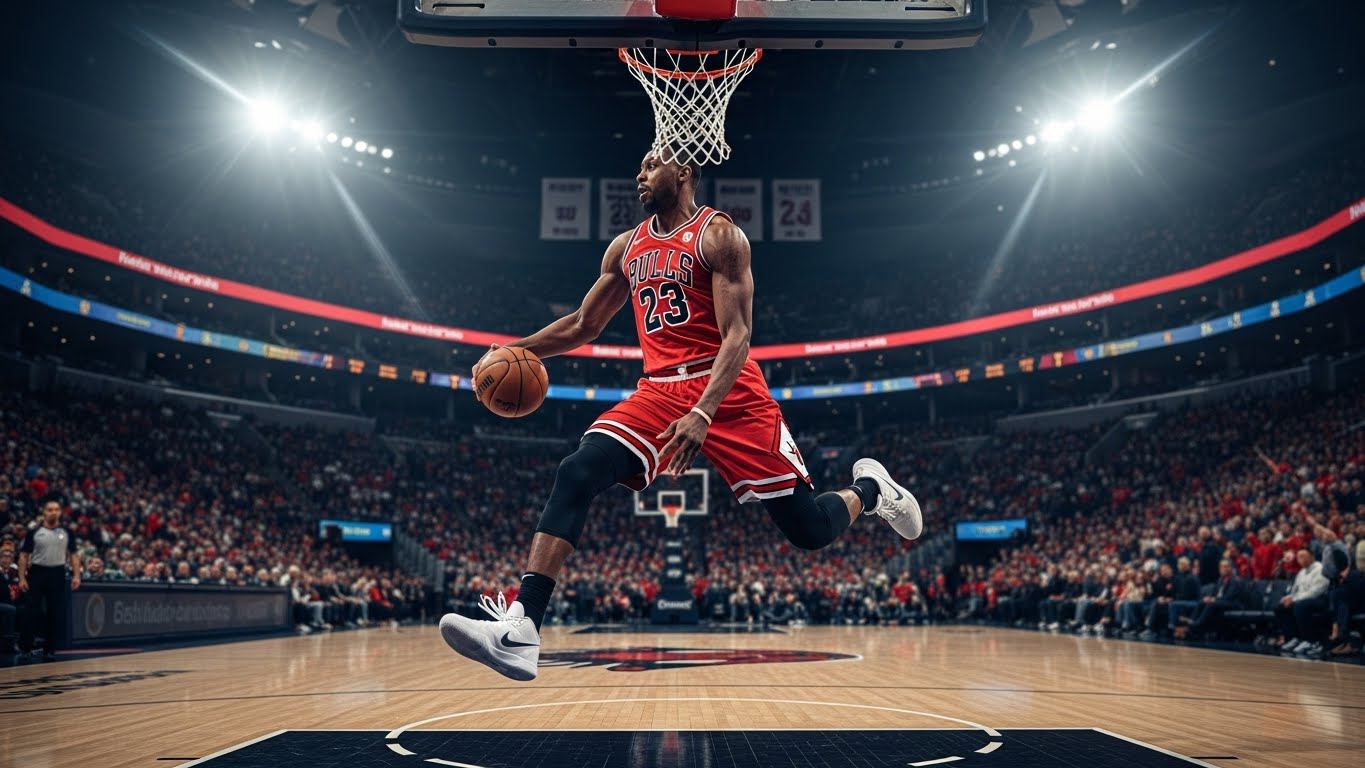Sports are one of the most universally accepted aspects of human culture. From the ancient Olympics to the modern-day global tournaments like the FIFA World Cup or the Olympic Games, sports have evolved into more than just games—they are a fundamental part of social life. Whether it’s the thrill of competition, the joy of physical exertion, or the unification of communities, sports play a crucial role in shaping human history. In this blog post, we explore the importance of sports in our lives, focusing on the physical, mental, social, and economic benefits they provide.
The Importance of Physical Fitness through Sports
One of the primary reasons sports hold such a significant place in our lives is their contribution to physical health. In an era where sedentary lifestyles are on the rise, sports serve as a powerful countermeasure to many health issues.
Cardiovascular Health and Endurance
Physical activities like running, cycling, and swimming are fundamental in maintaining a healthy heart. Regular participation in such sports strengthens the cardiovascular system, improving heart efficiency and endurance. Aerobic exercises, which involve continuous movement and higher energy output, help increase the heart’s capacity to pump blood and oxygen throughout the body. This reduces the risks associated with heart disease, hypertension, and stroke.
Sports that involve endurance—such as soccer, basketball, and long-distance running—also help improve lung capacity and stamina. As individuals engage in these activities, their body becomes more efficient in using oxygen, leading to better overall cardiovascular health. The ability to endure prolonged physical activity benefits not only athletes but also ordinary people looking to enhance their fitness levels.
Building Muscular Strength and Flexibility
Another crucial aspect of sports is their ability to build muscle mass and improve flexibility. Weight-bearing activities like gymnastics, swimming, and weightlifting are fantastic for enhancing muscle strength and bone density. This is particularly important as we age. Strong muscles help support joints and reduce the risk of injury, while strong bones prevent the onset of osteoporosis later in life.
Sports that emphasize movement patterns—such as tennis, soccer, and volleyball—also improve flexibility. Stretching and extending the body through various movements help lengthen muscles, increase flexibility, and reduce muscle stiffness. Flexibility is essential not only for performance but also for overall mobility and injury prevention.
Weight Management and Physical Fitness
Sports are an excellent way to manage weight and maintain overall fitness. Engaging in physical activity increases metabolism, burns calories, and prevents excessive weight gain. While many people turn to gyms or fitness classes, sports provide an exciting and social way to stay active. Whether playing a game of basketball with friends, running a marathon, or competing in a triathlon, sports help people burn calories while having fun.
Regular participation in physical activity is essential for controlling body weight. Studies have shown that those who engage in moderate-to-intense sports activities experience significant improvements in their metabolism and overall weight management. The combination of cardiovascular and strength-based exercises offered by sports helps burn fat, build muscle, and promote healthy body composition.
Mental Health and Emotional Well-being
While sports are widely recognized for their physical benefits, they are equally important for mental and emotional well-being. The mental health benefits of sports are profound and multifaceted, affecting not just athletes but anyone who engages in physical activity.
Stress Relief and Improved Mood
Physical activity has long been known to reduce stress and anxiety. When we engage in sports, our brain releases endorphins, chemicals that promote feelings of happiness and relaxation. These endorphins help mitigate feelings of stress and tension, which is why people often feel a sense of calm and euphoria after intense physical activity.
Sports offer a form of escape from the stressors of daily life. Whether playing tennis, participating in a soccer game, or cycling through the park, these activities require focus and concentration, providing a mental break from the usual pressures. Sports serve as a healthy outlet for negative emotions, allowing individuals to release frustration, anger, or anxiety in a productive way.
Building Confidence and Self-Esteem
Another crucial psychological benefit of sports is their ability to build confidence. Success in sports—whether through winning a competition, achieving a personal best, or simply overcoming physical challenges—boosts self-esteem. The more we push ourselves physically, the more we learn about our limits and capabilities. Each victory, whether small or large, reinforces our belief in ourselves.
Sports also promote a sense of achievement. For many people, setting and achieving goals in sports translates into greater confidence in other areas of life. The sense of pride in completing a challenging workout or winning a game boosts self-worth and encourages personal growth.
Cognitive and Focus Enhancement
Sports can enhance brain function. Engaging in physical activities improves cognitive abilities, such as memory, concentration, and problem-solving skills. This is especially true for sports that require strategic thinking, such as basketball, soccer, or chess. These sports help improve the brain’s ability to process information, make quick decisions, and anticipate outcomes.
In addition, physical activity increases blood flow to the brain, which supports mental clarity and cognitive health. Regular participation in sports has been shown to reduce the risks of mental decline and dementia in older adults, supporting long-term brain health and preventing cognitive deterioration as we age.
Emotional Resilience and Mental Toughness
Sports also teach emotional resilience. Athletes are regularly confronted with challenges, whether it’s a difficult opponent, an injury, or a loss. These experiences teach individuals to persevere in the face of adversity, build emotional strength, and bounce back from setbacks. Sports cultivate a growth mindset, which encourages people to see challenges as opportunities for improvement rather than obstacles.
The emotional skills learned through sports—such as handling disappointment, accepting failure, and celebrating success—are valuable in all aspects of life. Whether in the workplace, at school, or in personal relationships, the resilience fostered by sports provides the mental fortitude to handle life’s ups and downs.
Social Connectivity through Sports
Beyond physical and mental benefits, sports are a powerful social tool that fosters community and collaboration. Whether playing on a team or enjoying recreational activities with friends, sports provide an avenue for individuals to connect, interact, and build meaningful relationships.
Teamwork and Cooperation
Perhaps one of the most significant social benefits of sports is their ability to teach teamwork. In team sports like football, basketball, and volleyball, players must collaborate toward a common goal. Teamwork promotes communication, cooperation, and mutual respect. It teaches individuals to trust each other, share responsibilities, and work together toward achieving success.
These lessons in teamwork translate into real-world situations. Whether at work or in personal relationships, the skills developed through team sports—such as working toward a shared objective, respecting others’ roles, and resolving conflicts—are incredibly valuable.
Inclusivity and Cultural Exchange
Sports have the ability to bring people together from different cultural, ethnic, and socio-economic backgrounds. Whether it’s a local league or an international tournament, sports break down barriers and foster inclusivity. For example, the Olympic Games bring together nations from around the world, allowing people to celebrate their differences while also recognizing their shared love of competition and sport.
Sports create opportunities for cultural exchange. They provide platforms for people from diverse backgrounds to engage, learn from each other, and celebrate each other’s differences. This contributes to a more inclusive society where diversity is respected and appreciated.
Leadership Development
Sports also provide opportunities for leadership development. Whether it’s captaining a soccer team or mentoring a younger athlete, sports allow individuals to step into leadership roles. Leaders in sports must motivate, inspire, and manage others, while also taking responsibility for their actions and decisions.
The leadership skills learned through sports—such as decision-making, problem-solving, and empathy—are crucial in personal and professional contexts. Effective leaders in sports know how to communicate well, support their teammates, and lead by example, skills that can be translated into a wide range of careers.
The Economic Influence of Sports
The impact of sports extends far beyond the individual level and affects the global economy. Sports are not just a form of entertainment—they are an economic powerhouse that drives industries, creates jobs, and generates revenue.
Employment Opportunities
The sports industry creates millions of jobs worldwide. Professional athletes, coaches, managers, and support staff are directly employed by teams and organizations. However, the ripple effect extends much further. Media professionals, event organizers, marketers, sports psychologists, and physiotherapists all rely on the sports industry for their livelihood. Additionally, the global demand for sports products—such as apparel, equipment, and fitness technology—generates substantial employment in manufacturing, distribution, and retail.
Tourism and Local Economies
Hosting major sporting events, such as the Olympics, the FIFA World Cup, or the Super Bowl, provides a significant boost to local economies. These events attract millions of tourists, including athletes, spectators, and media personnel. Local businesses, such as hotels, restaurants, and transportation services, benefit from the influx of visitors, leading to job creation and revenue generation.
In addition to immediate financial benefits, hosting sports events often leads to long-term improvements in infrastructure, including the development of new sports venues, improved public transportation, and upgraded city facilities.
Sponsorship and Advertising Revenue
Sports sponsorships are a major source of revenue for professional leagues, teams, and athletes. Companies pay substantial amounts to sponsor events or athletes in exchange for exposure to large audiences. The global appeal of sports, combined with the massive media coverage, makes sports a prime marketing platform. Advertisers spend billions of dollars on sponsorship deals, which in turn help to fund teams, leagues, and sports organizations.
Broadcasting rights also generate significant revenue for sports organizations. Television deals, both domestic and international, ensure that major events are broadcast to millions of viewers worldwide, providing additional income for organizers and athletes.
The Future of Sports
As we look toward the future, several trends are poised to shape the world of sports. Advancements in technology, a growing emphasis on inclusivity, and the rise of digital competitions will continue to influence how sports are played, watched, and experienced.
Technological Innovation
Technology is already revolutionizing sports. From wearables that track performance to AI-driven analytics that provide insights into player behavior, technology is helping athletes improve their game. Virtual reality (VR) and augmented reality (AR) are also transforming the fan experience, allowing people to engage with their favorite sports in new and immersive ways. Innovations in medical technology are also helping athletes recover faster and perform at their peak.
Inclusivity and Gender Equality
The future of sports will see greater inclusivity, both in terms of gender and disability. Women’s sports are already receiving more attention, with increased funding, media coverage, and professional leagues emerging across various sports. Moreover, adaptive sports are growing in popularity, enabling people with disabilities to compete and showcase their talents.
The Rise of Esports
Esports is an emerging field that combines competitive gaming with the traditional elements of professional sports. With millions of viewers across the globe, esports is quickly becoming a major player in the entertainment industry. Major leagues, international tournaments, and corporate sponsorships are beginning to rival traditional sports in terms of audience engagement and revenue.
Conclusion
Sports play a pivotal role in human society, offering a range of benefits that extend well beyond the playing field. From physical health and mental well-being to social connectivity and economic growth, sports are a universal force that shapes our lives in countless ways. As we continue to embrace the future of sports—driven by technology, inclusivity, and global connectivity—the importance of sports in our culture and lives will only continue to grow, ensuring that they remain a vital and powerful force for generations to come.



